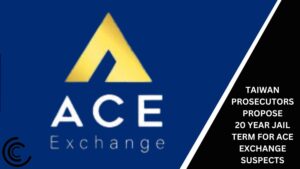Key takeaways:
- Two newly established committees on AI and crypto have been proposed to receive a combined annual fund allocation of $39,240 by a Virginia Senate committee.
- The Artificial Intelligence Commission seeks to create and uphold regulations that will ultimately restrict AI use to prevent illicit activity.
Two newly established committees on artificial intelligence (AI) and cryptocurrency have been proposed to receive a combined annual fund allocation of $39,240 by a Virginia Senate committee.
In a proposal released on February 18, the Senate Finance and Appropriations Committee’s Subcommittee on General Government allotted more than $23.6 million to different legislative agencies. Among the sum, a planned general fund of $17,192 for 2025 and 2026 was given to the Blockchain and Cryptocurrency Commission, which was founded in January 2024.
A total of $22,048 was allocated for the same year to the Artificial Intelligence Commission, which is now known as the Committee on Communications, Technology, and Innovation.
The Blockchain and Cryptocurrency Commission’s mandate includes researching, recommending, and encouraging the growth of blockchain and cryptocurrency in the state. Ten legislative and eight nonlegislative members will make up its fifteen members, who shall be nominated “no later than 45 days after the effective date of this act.”
Similarly, the Artificial Intelligence Commission seeks to create and uphold regulations that will ultimately restrict AI use to prevent illicit activity.
On January 9, a measure to create the blockchain and cryptocurrency commission and change the Virginia Code was introduced. On February 1, the Senate passed it with a unanimous vote.
Virginia has introduced crypto mining legislation that benefits both individuals and corporations and creates new legislative committees focused on cryptocurrency and AI ecosystems.
Senate Bill No. 339, which seeks to exempt miners from getting money transmitter licenses, was proposed by Senator Saddam Azlan Salim on January 9. Additionally, the measure forbids mining-specific ordinances from being imposed in industrial zones:
“No license under this chapter shall be required of any person engaging in-home digital asset 37 mining, digital asset mining, or digital asset mining business activities, as those terms are defined in § 38 15.2-2288.9.”
Although the measure does not classify enterprises providing mining or staking services as “financial investments,” they still need to file a notification in order to be eligible for the exemption.
The proposed law would allow individuals to deduct up to $200 from each transaction from their overall capital gains when calculating their taxes. Gains from using digital assets to acquire products or services are excluded from this clause. Therefore, through tax advantages, the measure encourages using cryptocurrencies for routine transactions.










